Senator Godswill Akpabio from Akwa Ibom State seems to have taken the lead in the race to the headship of the 10th National Assembly as Senate President. Last week, Kano State Governor, Abdullahi Ganduje, a leading member of the ruling All Progressives Congress (APC) and close associate of President-elect Bola Tinubu, said Akpabio was the choice of the party’s caucus.
For effect, Akpabio had caused a movement of elected lawmakers in the next national assembly to join him on stage as he made a speech at the banquet for the visiting President-elect in Port Harcourt, Rivers State.
At a visit to the Cross River State Governor, Prof Ben Ayade, with Prof Ibrahim Gambari, chief of staff to President Muhammadu Buhari, in attendance, Governor Ganduje declared that the decision to nominate Akpabio was already a done deal. According to the influential APC governor p, “The senate president of the Federal Republic of Nigeria will come from the south-south and it is no other person than the former governor of Akwa Ibom.” He went on to address Akpabio by his sobriquet, the uncommon governor, adding also that he is “the uncommon minister who is going to be the uncommon president of the senate. So we have resolved that. I am giving you assurance, we are waiting for the D-Day that he will be the senate president of Nigeria.”
There was no official confirmation elsewhere that Akpabio is the chosen one. Rather, contestants, from Abia State’s Orji Uzor Kalu to Imo State’s Osita Izunaso, who are ranking senators to other first termers from the south such as Edo State’s Adams Oshiomhole and Ebonyi’s Dave Umahi have all thrown their hats into the ring. Same for other aspirants from the north who say they deserve the position more for their effort to get Tinubu elected president. That position has invariably put the president in a bind, which has informed his position that the field be left open until his inauguration on May 29th.
The APC National Chairman, Senator Abdullahi Adamu, has said the Party will liaise with Tinubu, about the 10th assembly leadership. He made the statement on Wednesday May 3 in Abuja, while speaking with newsmen at the end of a four hours closed-door meeting of the party’s National Working Committee (NWC).
It was at the end of a meeting which was expected to make far-reaching decisions on the zoning of NASS offices. But, that fell short. It was not difficult to see why. Earlier in the day reports had emerged that President-elect Bola Tinubu was keen to move the issue of zoning the Assembly offices to after his inauguration on May 29, about three weeks away. Why so? Sources indicate that Tinubu, who has vowed to run an inclusive government, is keen to ensure that he aligns his appointment with the zoning of offices so that he doesn’t have a disproportionate representation that becomes the talking point so early in his administration.
In stating the position that Tinubu is central to defining the party’s position on zoning, Adamu said, “When we do the zoning meeting, we don’t just go alone as a party, zoning is to take along the person who has the mandate of this country, the President-elect, Sen. Bola Tinubu.” Adamu, however, added that the Party would not interfere in any interest canvassed in choosing the persons to lead the two chambers of the assembly; whether it’s on zoning or individual interest.
Also speaking, Mr Felix Morka, the party’s National Publicity Secretary, explained that “Zoning was a mechanism by which the Party was able to make a decision”, saying it afforded those interested in competing for political positions, to do so with a minimum rift or rancour. He added that zoning required very exhaustive consultation, not just of the party’s leadership, but also of those who were aspiring.
The position of Tinubu, the party and its Chairman is doing nothing to affect the campaigns and emotions of the National Assembly’s top positions. To understand what it means, in the order of protocol, the Senate President comes third after the President and Vice President. Others in line are in the following order: Speaker of the House of Representatives, Chief Justice of the Federation, Deputy President of the Senate and the Deputy Speaker of the House of Representatives. So, in effect, the battle is for the Numbers 3, 4, 6 and 7 men in the Federation after the president and vice president who are Numbers one and two, respectively.
So it is not difficult to see why various zones want a place at the table. Or, more appropriately, why politicians are making the arguments that they deserve the offices they seek at the National Assembly.
A close associate of President Muhammadu Buhari, Kailani Muhammad, and other members of the Tinubu/Shettima Network, a pro-Tinubu political group, are drumming support for a former Zamfara State governor, Abdulaziz Yari, as the president of the 10th Senate.
Addressing a press conference in Kaduna on Tuesday, May 2, Muhammad, who is the National Coordinator of the TSN, said though all contestants in the race for the Senate presidency had the right to do so, the former Zamfara State helmsman should be considered for the coveted seat. He noted that Yari gave the highest votes of 2,700,000 to the APC at the February 25 presidential election and deserved the Senate president seat.
In addition to the increasing quest for the 10th National Assembly leadership, the lawmakers from the seven political parties that won election into the 10th House of Representatives after a recent emergency meeting in Abuja, have stated that it was primed to contest the positions of Speaker and Deputy Speaker of the 10th National Assembly House of Representatives.
Speaking with journalists on the position of the caucus, a member-elect from Anambra state, Hon. Victor Afam Ogene, stated that the Constitution of the Federal Republic of Nigeria permits every elected member the statutory right to gun for any leadership position, subject to the standing orders of the House.
He said “Besides the issue of ranking, every member is entitled to run for the office of Speaker, regardless of political party affiliation. The All Progressives Congress (APC) or any political party for that matter, reserves the right to regale itself with talks about micro-zoning leadership positions in the National Assembly. The overriding question remains, are such fanciful engagements binding on the generality of members-elect? The answer today, tomorrow and until our current constitution is altered to reflect that desire, is a big No”.
Afam stated that “Issues surrounding this all-important question is easily resolved, in the case of the House of Representatives, by Section 50(1) (b), which says “There shall be a Speaker and a Deputy Speaker of the House of Representatives, who shall be elected by the members of that House from among themselves. While zoning is permitted as an intra-party solution to the sharing of political offices, seeking to enforce such on the generality of members would be tantamount to affronting Section 50 of the Nigerian constitution”.
The question of unity has however dogged the opposition parties, particularly with feelers that Rivers State Governor, Nyesom Wike, may no longer be committed to the opposition People’s Democratic Party, and has hinted at supporting the ruling APC in the selection of the leadership of the National Assembly.
The contest for the Senate Presidency appears to be heading towards a smoother process as a good numbers of Senators-elect under the ruling APC, have committed themselves to following the party’s directive on the zoning of the seat of the Senate president in the 10th National Assembly, and also support whichever Senator the party throws its weight behind.
Senator-elect, Dr Idiat Adebule (APC), who won the Lagos West Senatorial seat is in the front row of those backing the Party in whatever it decides. She said, ‘’I am a product of the party. If you check my antecedent, I have always toed the position the party takes on an issue”. Similarly, the Senator-elect representing Benue North Senatorial district, Senator Titus Zam (APC) said “I will vote as the party leadership will direct. I have no personal opinion on this.”
The Senators representing Ebonyi Central Senatorial zone, Engineer Ken Eze (APC), and his Ebonyi North counterpart, Barr. Onyekachi Nwebonyi (APC), have however expressed different views, describing Governor David Umahi, who is the Senator-elect of Ebonyi South Senatorial zone, as the most competent and qualified person for Senate President.
Governor Umahi recently declared his intention to contest the Senate President of the 10th National Assembly and faulted the Senate rule which gives preference to ranking members of the National Assembly, to emerge contest for Senate president.
On his stand for the zoning of the Senate presidency of the 10th National Assembly, the Senator- elect who will be representing Borno Central at the upper chamber of the legislative body, Hon. Kaka Shehu- Lawan of the APC, said he will abide by whatever decision the Vice President-elect, the state governor and the party leadership take on zoning.
Senator Ndume, a ranking senator of the APC is said to be one of the contenders of the Senate presidency from the North-East zone. As stated earlier, former Governor Akpabio who governed Akwa Ibom State between 2007 and 2015 on the platform of the PDP, before ditching the then ruling party to pitch his tent with the APC on August 8, 2018, is also one of the front runners in the race.
The Senator-elect for Plateau Central Senatorial District under the platform of the APC, Hon. Diket Plang, in his reaction, said they are waiting for directive from the Party to see where they will zone the position of the senate president.
According to him, they are products of a political party but believe that the Senate President seat should be given to the zone that has no representatives in the central government, because the North East has the vice president, South West has the president and these two zones should not have the Senate President zoned to them.
The Senator-elect for Delta North Senatorial district, Hon Ned Nwoko of the PDP, said the ruling Party should zone the positions first, maintaining that he would not jump the gun. While saying he would abide by the decisions of the Party after its ratification of the zone, he said that it will decide the candidate to vote for from the zone ratified by the party.
According to him, those nursing the ambitions from different zones are qualified, but cannot decide for themselves, but the Party which will decide the zone to produce, which and what positions to be contested for.
Meanwhile the Senate President Ahmed Lawan has said there was no need for concern regarding the leadership of the 10th Senate. He disclosed this on Friday April 28, to State House correspondents at the Presidential Villa. Lawan expressed confidence that Senators would adhere to the All Progressive Congress (APC) decision, and present a united front. He dismissed the possibility of the opposition party overruling the ruling party’s plan for the Senate presidency.
Lawan emphasised that APC Senators would work together with colleagues from other parties in a bi-partisan manner to select the house leadership. He affirmed that the APC was not in trouble, and he was confident that the APC members and Senators-elect would respect whatever decision the Party and its leaders would make.
According to him, “I don’t see anything wrong in the opposition talking to us, or we’re talking to them to ensure that we’re on the same page, because we need opposition to ensure that we get most of our constitutional amendments when the time is right, passed. This is because we can’t have the 73 in the Senate. You need 73 Senators at least, for you to have any constitutional amendment. So you would need opposition. That’s why it is very, very critical, it is very essential that you work with opposition right from the beginning. Don’t ever think the opposition should be pushed away”.
For the Senate, with the conclusion of the supplementary elections into the National Assembly, the 10th Senate has now been fully composed. All the109 senatorial districts now have representatives in the upper chamber of the National Assembly.
The APC emerged as the majority party in the Senate with 59 members-elect. The next biggest party in the Red Chamber is the Peoples Democratic Party (PDP), which now has 36 senators-elect. However, the other five minor parties still maintain the number of seats won in February, as they did not win any seat during the supplementary elections.
With the composition of the membership of the 10th Senate finalised, the six opposition parties have altogether 50 senators-elect as against APC’s 59. It is therefore expected that they will play some role in the battle for leadership positions in the upper legislative chamber during its inauguration on June 13 as was the case in the eight Senate.
As these intrigues continue to build up, aspirants for the top job have intensified their campaigns. The development has led to a growing number of aspirants jostling for the Senate presidency. Those eyeing the position include Senators Jibrin Barau (Kano North); Godswill Akpabio (Akwa Ibom North-West); Orji Uzor Kalu (Abia North); Abdul-Aziz Yari (Zamfara West); Sani Musa (Niger East); Ali Ndume (Borno South), Osita Izunaso (Imo West), Dave Umahi (Ebonyi South) and Adams Oshiomhole (Edo North).
While some have rooted for regional considerations, others pushed for open contests, arguing that competence, party loyalty, and experience must not be sacrificed for the zoning sentiment. The final candidates for the positions will be largely determined by the Party’s zoning arrangements, in which the president-elect and the APC leadership are expected to play key roles.
From the House of Representatives, the outcome of the supplementary elections swelled the number of the elected members of opposition Parties in the 10th House of Representatives, to 182, one vote more than the statutory benchmark of 181 votes required to elect a speaker. With this, the opposition caucus has resolved to clinch the coveted position.
With several national issues awaiting urgent intervention from lawmakers in national security, the economy, education, service delivery, corruption, and lack of accountability in governance, the 10th Assembly’s job is well cut out. It requires that its members go the extra mile by constantly keeping their eyes on the ball, not just flaunting titles. June 13 is most likely for the inauguration of the 10th National Assembly, after the newly inaugurated President issues a proclamation to that effect in line with the provisions of the 1999 Constitution.
Despite the jostle for leadership positions in the two chambers already going on, its complexities and the seven political parties that produced the legislators, rather than the usual dominant two, observers are hoping that the pursuit of self-centred interests like undeclared self-granted allowances and emoluments, in the discharge of oversight functions, should give way to true patriotism and a sense of duty. Lawmakers should therefore position themselves with the necessary vision and mission, to deliver on public good. Next week will be charged as lawmakers elect jostle for the leadership of the 10th national assembly.


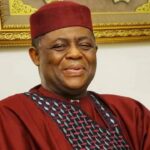
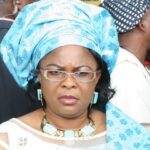
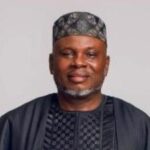
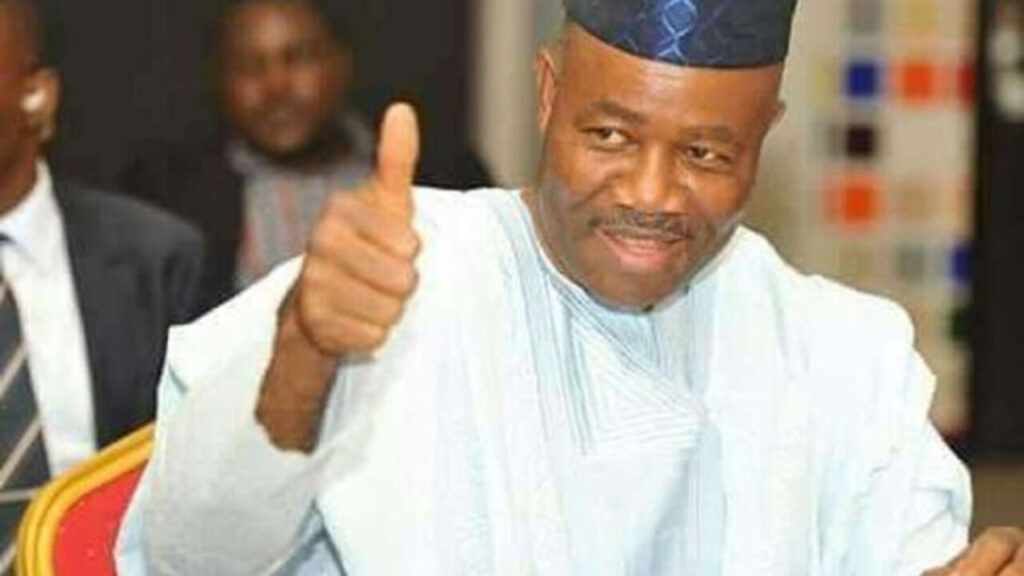
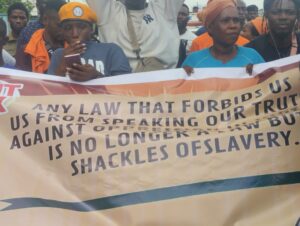

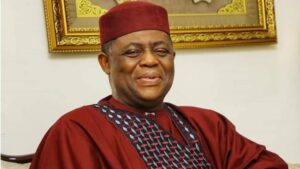
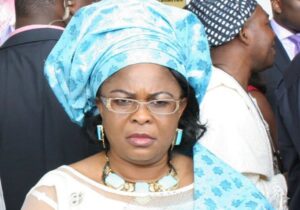
More Stories
Police teargas protesters in Rivers, Abuja
Tinubu considers Fani-Kayode, others for ambassadorial appointments
NBA intervenes, as detention of 15 domestic aides accused of theft from ex-First Lady Patience Jonathan, lingers